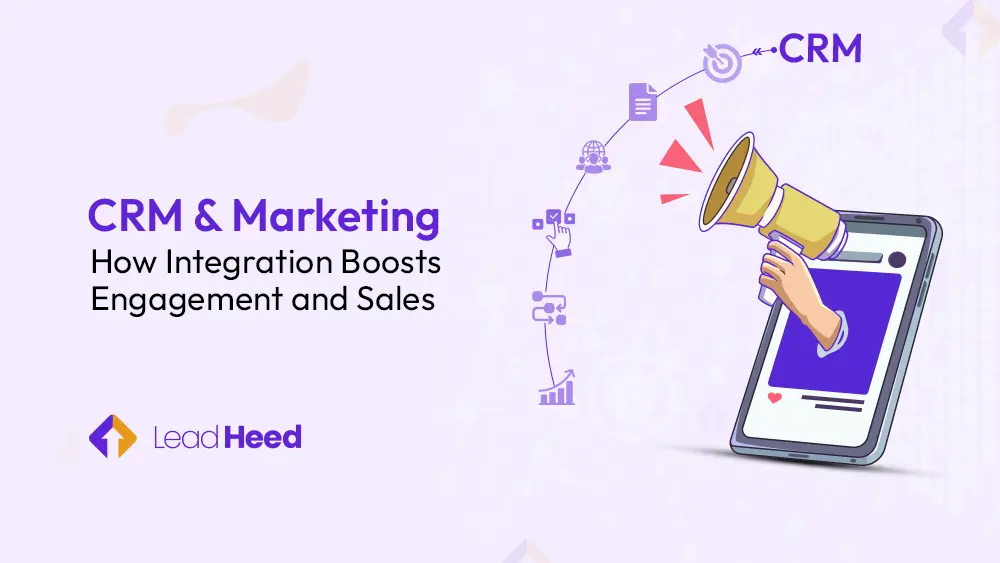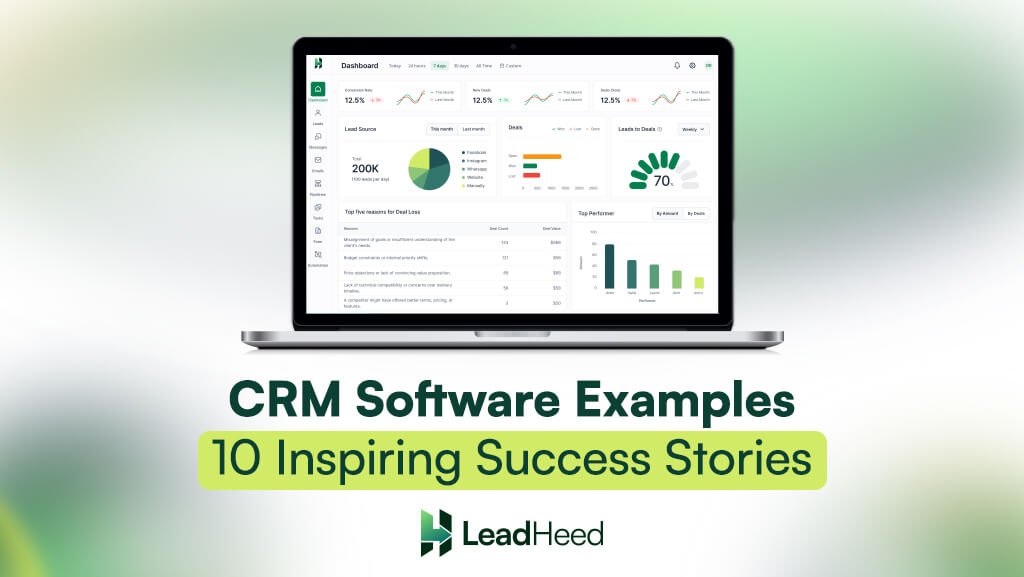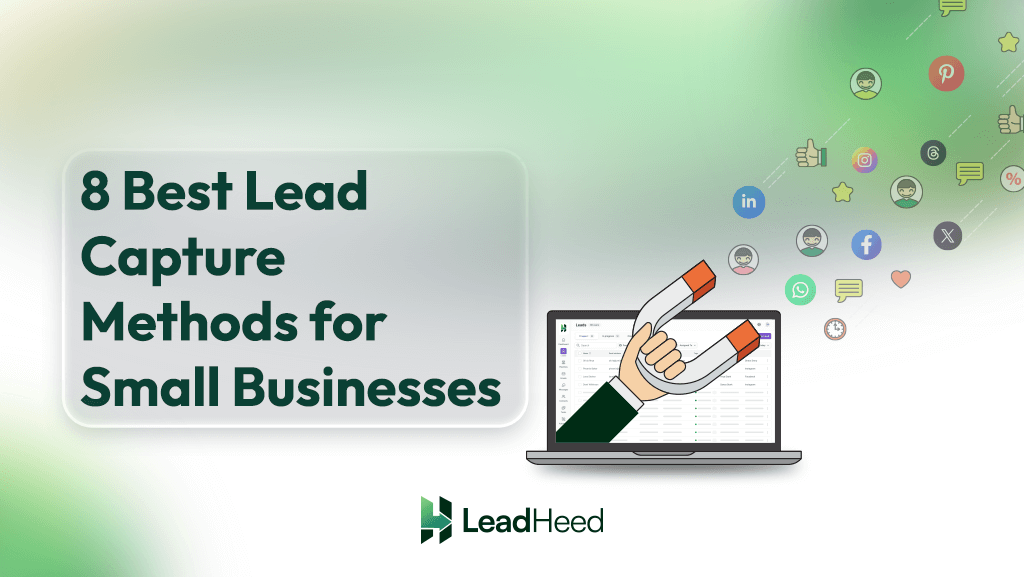Many businesses still rely on traditional marketing methods that don’t feel personal and fail to connect with customers. This wastes time, costs money, and makes it harder to turn leads into loyal customers.
When systems aren’t connected, important information gets lost, automation doesn’t work well, and customer interactions slip through the cracks. The solution is CRM and marketing integration. This powerful approach brings all customer data together, making campaigns easier. It also lets you send messages that truly resonate with each person.
In this blog, we’ll show you how it works, the benefits, key features, and simple strategies to help you connect with customers.
What Is CRM and Marketing Integration?
CRM and marketing integration means connecting your CRM system with the tools you use for marketing. This link helps your team automate campaigns, track every interaction, and keep all customer information in one place. It also improves teamwork between marketing and sales, so nothing falls through the cracks.
Unlike old-fashioned marketing that sends the same message to everyone, CRM-marketing integration lets you create personalized campaigns based on what each customer does and likes. You can group customers, send messages at the right time, and share content that truly matters to them, building trust and better engagement.
How CRMs Support Marketing Teams?
CRMs empower marketing teams by offering three key advantages: centralized customer data, automation, and analytics with insights. Together, these features help marketers target the right audience, run efficient campaigns, and make smarter decisions that boost engagement and sales.
1. Centralized customer data.
CRMs bring all customer details, interactions, and purchase history into a single system instead of scattered spreadsheets or disconnected tools. This unified view helps marketers identify the right target audience and segment them effectively. With accurate, up-to-date data, teams can deliver campaigns that are more relevant to customer needs and behaviors.
2. Automation.
Your marketing teams can use CRMs to handle routine tasks like sending emails, follow-ups, and lead nurturing automatically. This ensures timely communication, prevents mistakes, and ensures leads don’t get stuck in the sales process. With less manual work, marketers have more time to focus on new ideas, strategy, and creative campaigns.
3. Analytics and insights.
CRMs let your teams track customer actions, engagement, and conversions in real time. This helps marketers see which parts of a campaign are working and which need fixing. By using this data, your teams can improve their campaigns, work better with sales, and get higher returns on their efforts.
Why Businesses Should Use CRM with Marketing?
To centralize customer data, deliver personalized campaigns, save time through automation, and gain actionable insights, businesses should use CRM with marketing. These help teams engage customers effectively, boost conversions, and optimize overall marketing performance. Let’s see them briefly:
1. Centralized customer data for better targeting.
A CRM stores all customer details, like contacts, purchases, interactions, and preferences in one system. This helps your marketing teams reach the right people, avoid repeating work, and keep communication clear and consistent.
2. Personalized campaigns that increase engagement and conversions.
When customer data is well-organized, marketers can group people into clear segments and send personalized campaigns that feel relevant. Targeted emails, offers, and messages grab attention, build stronger connections, and turn more leads into customers.
3. Automation for time-saving and efficiency.
CRMs can automate repetitive marketing tasks such as follow-ups, email sequences, and campaign scheduling. This saves time, ensures no lead is neglected, and allows teams to focus on strategy rather than manual work.
4. Insights and analytics for smarter marketing decisions.
A CRM not only tracks campaign performance and identifies which messages resonate, but also shows which leads are most likely to convert. These actionable insights enable businesses to refine strategies, optimize marketing efforts, and significantly boost CRM ROI.
Key Features of CRM Tools for Marketing
CRM tools offer powerful features like audience segmentation, campaign automation, lead management, and analytics that help businesses manage and optimize marketing efforts. By integrating with other platforms, CRMs ensure marketing is efficient, data-driven, and results-focused. Let’s see the key features of CRM tools for marketing briefly:
1. Audience segmentation and targeting.
CRM tools let businesses group customers by age, behavior, or interests. This way, marketers can send messages that truly matter to people, making them feel understood and valued. As a result, customers engage more and are more likely to buy.
2. Multi-channel campaign automation.
With CRM, marketing campaigns can be automated across multiple channels like email, social media, and SMS. This ensures consistent messaging, saves time, and allows marketers to reach customers wherever they are most active.
3. Lead nurturing, scoring, and analytics.
CRMs help you track leads through the sales funnel, automatically send follow-ups, and score leads based on engagement or purchase intent. Analytics provide insights into campaign performance and lead behavior, enabling smarter marketing decisions.
4. Integration with other marketing platforms and tools.
CRM systems can integrate with email marketing software, social media platforms, analytics tools, and more, creating a unified ecosystem. This ensures all marketing efforts are coordinated, data flows seamlessly, and teams can make informed decisions.
How to Plan and Run Effective Marketing Campaigns Using CRM?
To run effective marketing campaigns using CRM, businesses should define goals and KPIs, segment audiences, create personalized campaigns with automated workflows, and monitor performance to optimize results. These steps ensure marketing efforts are targeted, efficient, and aligned with business objectives. Let’s break it down:
1. Define goals and KPIs
Start by setting clear objectives for your campaign, such as generating leads, boosting sales, or improving customer engagement. Establish measurable KPIs to track progress and know what success looks like. These goals act as the foundation for all the steps that follow.
2. Segment your audience
With your goals in place, use CRM data to group customers based on demographics, behavior, purchase history, or engagement level. This segmentation ensures your messages are tailored to the right people, making the campaign more relevant and effective.
3. Create personalized campaigns with automation
Once you’ve grouped your audience, create messages, offers, and content that truly speak to each group. Use CRM automation to send emails, reminders, and follow-ups on time, keeping your leads engaged without missing a beat.
4. Launch, monitor, and optimize
Once your campaigns are live, use CRM analytics to track key metrics such as open rates, click-through rates, and conversions. Analyze the results to see what’s working and refine your strategies, adjusting timing, content, or targeting to maximize impact and ROI.
Benefits of Combining CRM and Marketing
Using a CRM with marketing offers higher customer engagement, better lead-to-customer conversions, enhanced segmentation, time savings, and data-driven insights. These benefits help businesses connect with customers and run campaigns efficiently. By leveraging CRM, companies can boost conversions, improve satisfaction, and make smarter marketing decisions.
1. Higher customer engagement and satisfaction.
By using CRM data, you can send personalized messages and offers to each customer. This creates more relevant and meaningful interactions. As a result, customers feel valued and are more likely to engage with the brand.
2. Better lead-to-customer conversion rates.
CRMs track leads throughout the sales funnel and help marketers nurture them effectively. Timely follow-ups and targeted communication increase the chances of converting prospects. This leads to higher sales and improved revenue.
3. Enhanced segmentation and personalization
By using CRM, you can group customers based on demographics, behavior, or purchase history. This allows marketers to create personalized campaigns that truly connect with each segment. Personalized campaigns result in stronger engagement and higher conversion rates.
4. Stronger alignment between marketing and sales teams.
A CRM centralizes customer data, so both marketing and sales teams access the same information. This ensures smooth workflows and consistent messaging to prospects. The collaboration improves efficiency and overall business performance.
5. Time and resource savings through automation.
A CRM automates repetitive tasks like email follow-ups, campaign scheduling, and lead tracking. This saves time for marketing and sales teams. They can focus on strategy and creative work, improving productivity and results.
6. Data-driven marketing strategy decisions.
CRMs provide insights into campaign performance, lead behavior, and customer interactions. Marketers can analyze this data to identify what works and what doesn’t. Making decisions based on real data improves marketing effectiveness and ROI.
Best Practices for Successful CRM and Marketing Campaigns
To run successful CRM and marketing campaigns, businesses should keep data clean, align campaigns with business objectives, and use a multi-channel approach. Following these best practices ensures marketing efforts are focused, efficient, and targeted to the right audience.
1. Keep data clean and updated.
Keeping customer data accurate is key to smart marketing. Update contact info, purchase history, and interactions regularly, and remove duplicates so your campaigns reach the right people without mistakes.
2. Align campaigns with business objectives.
Every marketing campaign should support your company’s overall goals, whether it’s increasing sales, boosting engagement, or retaining customers. By aligning campaigns with business objectives, teams stay focused, and resources are used efficiently. This ensures that marketing efforts contribute directly to measurable growth and success.
3. Use multi-channel marketing approaches.
Customers interact with brands across multiple channels, including email, social media, SMS, and websites. Leveraging a multi-channel approach ensures your messages reach audiences where they are most active. Additionally, coordinated campaigns across channels increase visibility, engagement, and the likelihood of converting leads into customers.
4. Analyze results regularly and optimize campaigns.
Tracking and analyzing campaign performance is crucial for continuous improvement. CRM analytics allow your teams to monitor open rates, click-through rates, conversions, and customer behavior. Using these insights to adjust messaging, timing, or targeting makes campaigns more effective over time and maximizes ROI.
Conclusion
Integrating CRM and marketing is no longer optional; it’s essential for businesses that want to boost engagement, improve conversions, and build long-term customer relationships. By centralizing customer data, enabling personalized campaigns, automating repetitive tasks, and providing actionable insights, CRM and marketing software empower teams to create strategies that resonate with their audience. The result is stronger alignment between sales and marketing, better ROI, and more satisfied customers.
If you’re ready to take your marketing strategy and CRM integration to the next level, try LeadHeed, a powerful CRM built to help businesses capture quality leads, automate campaigns, and drive meaningful engagement. Get started with LeadHeed today and transform the way you connect with your customers.
FAQs
What is CRM, and how does it support marketing?
CRM (Customer Relationship Management) is a system that helps businesses organize customer data, track interactions, and manage workflows. In marketing, it segments audiences, personalizes messages, automates follow-ups, and measures engagement, helping businesses nurture leads and boost conversions.
How does CRM improve marketing campaigns?
CRM helps businesses improve marketing by organizing customer data, segmenting audiences, and personalizing messages. It automates follow-ups, tracks interactions, and measures campaign results, ensuring the right message reaches the right people to boost engagement and conversions.
Can small businesses benefit from CRM for marketing?
Yes. CRMs help small businesses centralize customer data, track interactions, and segment audiences for targeted campaigns. They automate follow-ups, save time, and ensure consistent communication. With built-in analytics, small teams can refine strategies, boost conversions, and build stronger customer relationships.
Which CRM is best for marketing campaigns?
The best CRM for marketing campaigns is LeadHeed, designed to help businesses capture quality leads, automate follow-ups, and personalize marketing campaigns. Other popular options include HubSpot CRM, Salesforce, Zoho CRM, and Pipedrive, but LeadHeed stands out for its ease of use, inbound marketing features, and focus on improving conversions.



